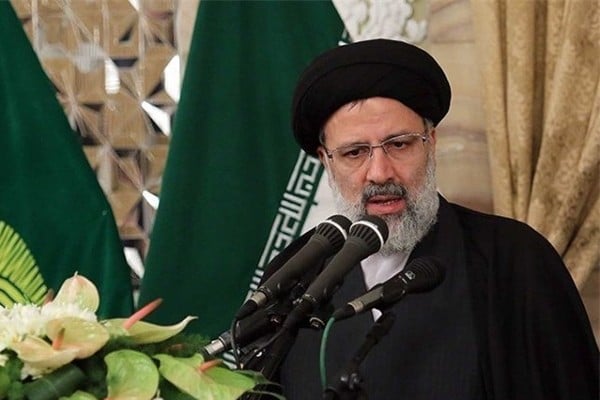Points include releasing billions of dollars to Tehran and no further sanctions, with Iran agreeing to release American prisoners and not provide Russia with ballistic missiles.
By Batya Jerenberg, World Israel News
Details of an informal, quiet agreement between the U.S. and Iran that falls short of a full-scale nuclear deal emerged in a New York Times report Wednesday.
The paper’s sources were one American and one Iranian official as well as three senior Israelis, two of whom called the deal “imminent.”
As previously reported, the unwritten understanding, which is being negotiated at least partially with the help of Oman as the two adversaries do not talk to each other directly, has Iran freezing its uranium enrichment at 60%. This level is necessary for weaponizing the uranium, not for using it for peaceful purposes, as Tehran claims, but it’s still only a short step away from the 90% contained in regular nuclear bombs.
Indeed, it is still enough to construct a crude nuclear device, and according to the most recent report by the International Atomic Energy Agency (IAEA), Iran has already amassed enough of this material for two bombs.
Iran would also agree to order its proxies in Syria and Iraq to stop attacking American contractors there, answer the IAEA’s call to cooperate more with its nuclear inspectors, and desist from selling ballistic missiles to Russia.
Tehran has already sold hundreds of its UAVs to Russia, which have been used in its war against Ukraine, and has agreed to help Moscow set up a plant in Russia to manufacture the lethal product locally.
The U.S. in turn would not sanction Iran further nor look to pass punitive resolutions against the Islamic Republic in the UN or IAEA for its nuclear program. Washington would also refrain from seizing tankers that from the American point of view are illegally transporting Iranian oil to countries that don’t agree with the sanctions.
Another expectation is that the White House would release billions of dollars in Iranian assets to be used ostensibly for humanitarian purposes only; in return, Iran would release three Iranian Americans it is holding prisoner on what the Americans insist are specious charges. There are also some $7 billion in held-back oil payments sitting in South Korea that the mullahs have linked to any possible prisoner release.
U.S. officials have not confirmed any association between the prisoners and either money or the nuclear issue, said the Times, although officials have said the detainees are a definite issue of concern to the Biden administration.
Dennis Ross, a former senior State Department official and Middle East envoy who co-founded the advocacy group United Against Nuclear Iran, said that the White House is pursuing this understanding because it “want[s] the priority and focus to remain on Ukraine and Russia.”
Any “crisis-averting” mini-deal should be of short duration, he added, because Iran has been building new nuclear facilities that are so deep underground that they could probably survive the Americans’ biggest bombs.
“The more they harden, the more the military options lose their potency,” Ross said. “Buying time from that standpoint works for the Iranians.”
The U.S., meanwhile, has denied accounts of any impending agreement, while Israel seems to think one is definitely in the works. State Department Spokesman Matthew Miller said on Wednesday that “rumors about a nuclear deal — interim or otherwise — are false or misleading.”
Prime Minister Benjamin Netanyahu was quoted on Tuesday as telling a closed-door meeting of the Knesset Foreign Affairs Committee that such a “mini-agreement” was something Israel “can live with.”
Israel has repeatedly stressed that no outside deal with the Iranians would stop Israel from using all means necessary to prevent Iran from producing nuclear weapons.





